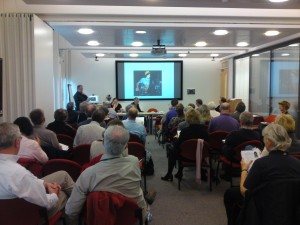The History of The Open University Project is very pleased to announce that registration for the following event is now open.
What have we learnt?
Transmitting knowledge, facilitating learning c1960-2010
29 November 2011, 10:30-15:30
Library Seminar Rooms 1 and 2, The Open University, Walton Hall, Milton Keynes MK7 6AA
Higher education has played a significant role shaping our culture and our social, religious, ideological and political institutions. Since the Second World War, in common with other western societies, the UK developed mass higher education from an elite format. New universities opened and existing institutions became polytechnics and later universities. In 1969 the Open University provided a new form of higher education institution. The existing universities developed new student bases and students engaged with a variety of communities
 This one-day forum, organised by the History of The Open University project, brings together a range of experts to discuss elements of the history of higher education over 50 years.
This one-day forum, organised by the History of The Open University project, brings together a range of experts to discuss elements of the history of higher education over 50 years.
The morning session will ask how have students been taught, looking at the move from traditional lectures and tutorials to the use of new technologies, a variety of pedagogies and the development of student-centred learning.
The afternoon session will reflect on 50 years of the student experience, placing learners’ perspectives at the centre.
Speakers include:
- Prof John Beckett, University of Nottingham
- Dr Georgina Brewis, Institute of Education
- Prof Judith George, The Open University
- Prof Fred Gray, Sussex University
- Dr Janet MacDonald, Higher education consultant
- Prof Andy Northedge, Higher education consultant
- Prof Harold Silver, Author of Tradition and Higher Education
- Prof Malcolm Tight, Lancaster University
- Dr Dan Weinbren, The Open University
There will be a short meeting at the end of the day for current researchers to discuss future workshops in the context of preparing a funding bid.
The workshop is open to all, but those who wish to attend are asked to register in advance as space is limited.
More information, including a provisional agenda and abstracts from the speakers are now available here.
To register please email [email protected].





